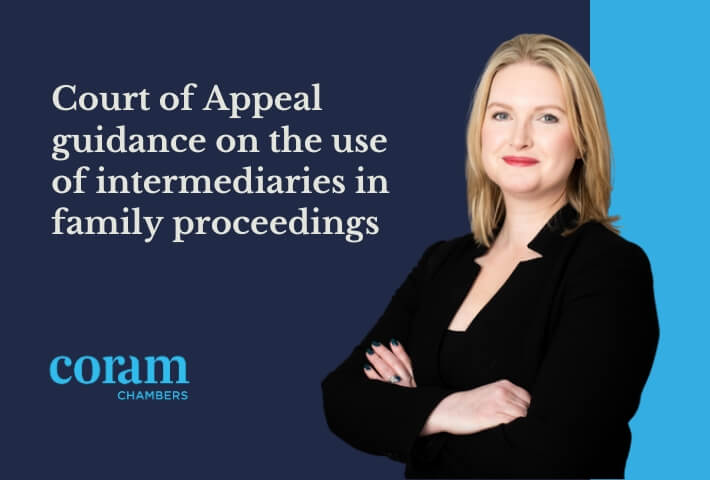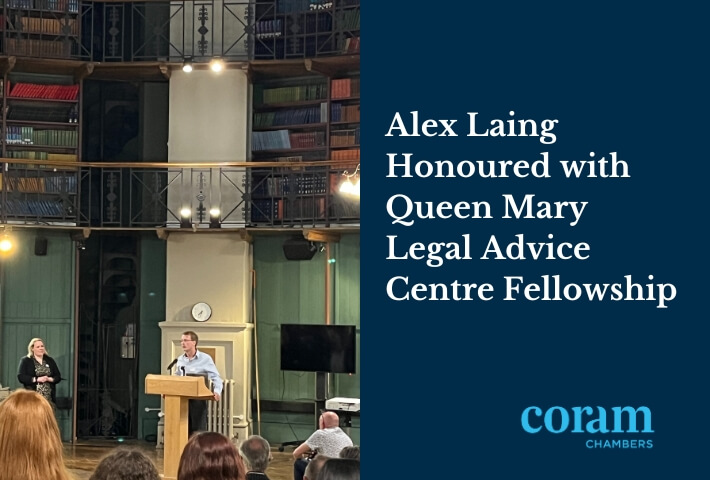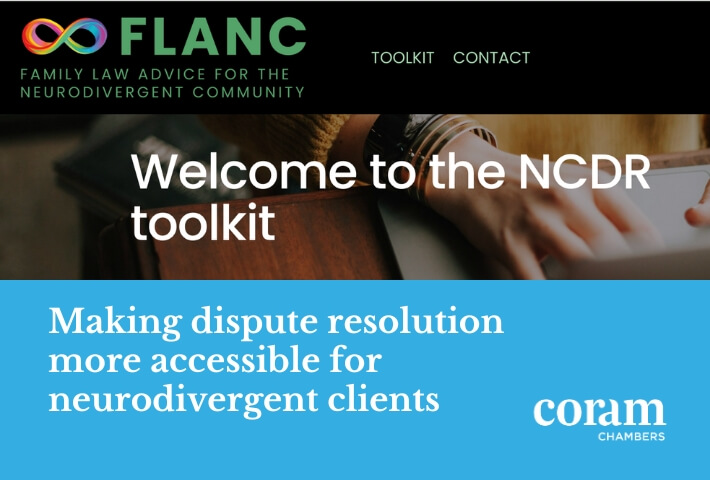What year were you called to the Bar?
I came to the Bar in 2010 following 14 years in practice as a solicitor
What year did you join Coram?
2010 – I came to Coram upon transferring to the Bar. It was the obvious choice for me and I was delighted that they agreed to have me!
What type of family law do you practice?
Most of my work is in public children law and adoption, acting for parents, children and relatives. In terms of private children work, I often act for separately represented children. I act in Human Rights applications arising out of family proceedings. I also undertake the occasional inquest.
How has being a LGBTQ+ lawyer changed since you were called to the Bar?
In truth, it’s hard to say. I’ve always stomped around the place as if I own it and, as well as being queer, I’m also a white, middle class woman, which probably accounts for the lack of challenge I’ve experienced around my sexuality. I’ve always been out so I’ve never been worried about being ‘outed’, so, for me personally, the change hasn’t been of any great magnitude.
Looking at the overall landscape, though, there is no doubt that there is a far greater acceptance of queer lawyers, our lives and norms than existed ten, fifteen, twenty years ago. I think back to a barrister I knew when I was a trainee solicitor in the mid 1990’s. Brilliant mind, superb orator, absolutely terrified of being ‘found out’. So entrenched was her fear that, regardless of changing social attitudes, she was never able to take the leap to come out, a situation which was doubly sad as, of course, everyone else knew anyway.
I can’t imagine someone coming to the Bar now having to live with such a massive burden, so I hope I’m right in saying that there has been real and positive change.
Do you feel like being out has affected how people behave towards you at work?
I think it has been positive. I pretty much look like the stereotype of what I am (basic 1980’s model dungaree dyke stuffed into a suit) so not being out has never really been a realistic option for me.
I think, on the whole, people prefer working with someone who isn’t hiding who they are and who is comfortable in their own skin. Of course, it helps that I work in a collegiate, friendly environment with colleagues who share the same broad value system. I don’t know how I would be answering this if I was in a different set of chambers or worked in a different area of law. Perhaps the choices I’ve made have been self-protective so I could avoid having to find out?
What more can be done to support LGBTQ+ lawyers and/or clients in family law?
We can support our colleagues and clients by being unashamedly who we are and by (courteously – unless the occasion really demands it!) calling out all forms of queerophobia if and when we encounter them, both in and out of the courtroom.
I’m a fan of small, individual actions just as much as of wider campaigning; by not ‘letting it go’ we change the landscape of what is and isn’t acceptable.
Who is your favourite LGBT+ historical figure?
This is a hard one. I wanted to say someone really serious and weighty, but I kept coming back to Quentin Crisp, both for his alternative Queen’s speech; on being in the UK: “pack now..” and for that line in The Native Civil Servant; “You can’t touch me, I’m one of the Stately Homos of England”.
Can I have another go?
What about Bessie Smith or James Baldwin?
And can I have someone who’s still alive? In which case it’s got to be Alison Bechdel, author of the “Dykes to watch out for’ graphic novels which kept me entertained for years and taught my kids what lesbians are really all about, without them having to ask me.
What is the best thing about being a family lawyer?
Well, it isn’t the pay – that’s for sure.
It is that it’s never boring and, contrary to the views of some of my colleagues in other branches of the law that it’s all tea and sympathy, it is actually a complex, endlessly fascinating and intellectually demanding discipline.


